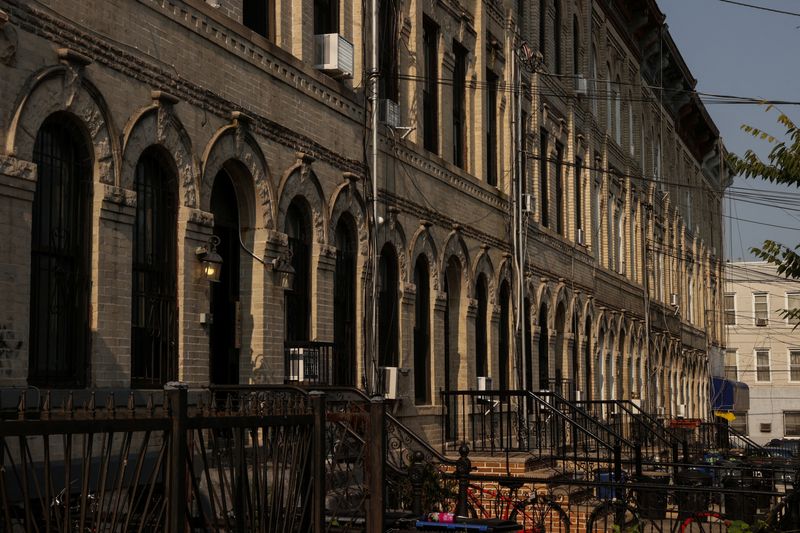
© Reuters. A row of residential houses stands in Brooklyn’s neighborhood of Bushwick, New York, U.S., September 16, 2022. REUTERS/Amr Alfiky/ File Photo
By Amina Niasse
NEW YORK (Reuters) – U.S. homebuying sentiment rose for a third consecutive month in February largely because a growing view among current homeowners that now is a good time to sell their house could bode well for a much-needed uptick in home listings.
Fannie Mae’s Home Purchase Sentiment Index increased by 2.1 points in February to 72.8 from 70.7 in January, it said on Thursday. On a year-over-year basis, it rose by more than 25%.
The share of consumers surveyed who said it is a good time to sell a home rose to 65% in February from 60% the month prior. That component was the largest contributor to the index’s gain.
“Consumer attitudes toward home-selling conditions increased markedly in February, with current homeowners, in particular, expressing greater optimism that it’s a ‘good time to sell,’ a development that may foreshadow an upcoming increase in existing home listings,” said Doug Duncan, Fannie Mae’s senior vice president and chief economist.
The inventory of homes for sale remains historically low as homebuilding has failed to keep pace with demand and many current homeowners are locked into lower-rate mortgages secured before interest costs started rising. That has kept many potential sellers from putting their homes on the market.
While the improved seller sentiment foreshadows increased supply, buyer sentiment remained overwhelmingly negative, Duncan said, even as it ticked up slightly to 19% from 17% in January. With interest rates still high, mortgage payment affordability has weighed on would-be buyers, and the net outlook for mortgage rates falling 5 points on a month-over-month basis, the report said.
“A decline in mortgage rates – and the resulting uptick in sentiment – would obviously bode well for the upcoming spring homebuying season, although affordability will likely remain a significant challenge for buyers, at least until there’s a meaningful addition to net supply,” Duncan said.
For the week ended March 7, the average rate on a 30-year fixed-rate home loan fell to 6.88% from 6.94% the week prior, snapping a streak of four weekly increases, according to Freddie Mac data. Rates have eased from two-decade highs near 8% seen in October, and 35% of consumers expect that trend to continue into 2024, Fannie Mae said.
Source: Investing.com




























